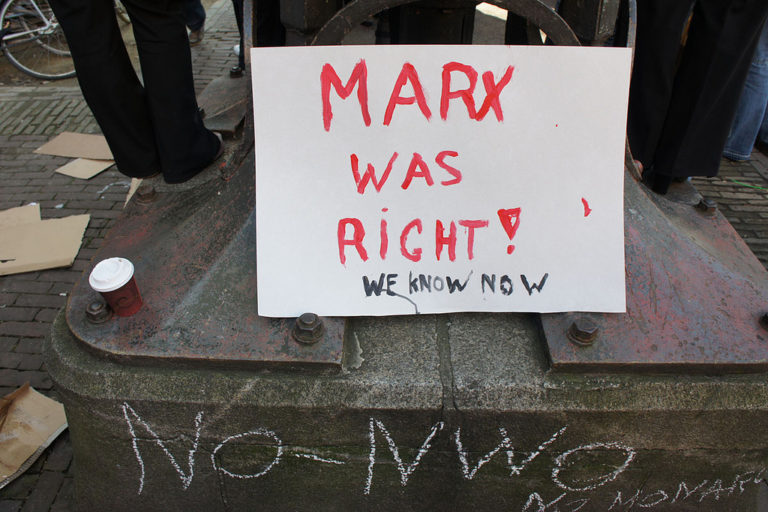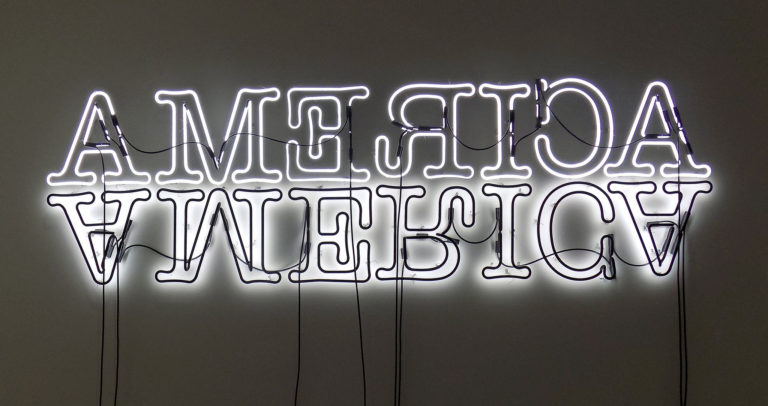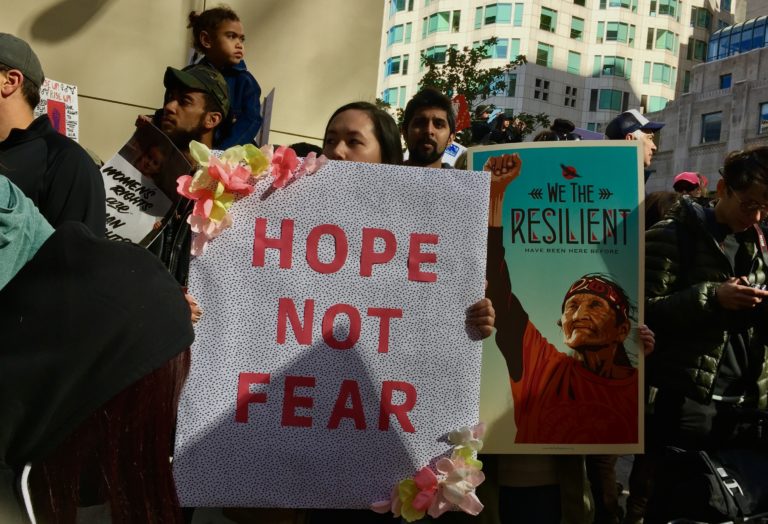Karl Korsch identifies in Marx’s work what he calls “the principle of historical specification,” the way in which “Marx comprehends all things social in terms of a definite historical epoch.” This work is concerned with this idea and its instantiation in contemporary social theory. With this paper I hope to show how the principle of historical specification has been interpreted within the Birmingham tradition of cultural studies, paying specific attention to (1) the form of historical time implicit in the concept of a “conjuncture,” and (2) the logic of historical periodization that follows from a “conjuncturalist” approach to historical research. I argue that a conception of plural temporality is central to the mode of historical analysis associated with the Center for Contemporary Cultural Studies.
Issues
Debord in Watts: Race and Class Antagonisms Under Spectacle
In this paper, I explore Guy Debord’s analysis of race and racializing processes by closely examining the use of footage of the Watts rebellion in Debord’s film The Society of the Spectacle (1973), along with a close reading of Debord’s 1965 text on the uprising, “The Decline and Fall of the Spectacle-Commodity Economy.” Debord’s Marxist perspective on Watts understands the insurgents as potential revolutionary actors, primed for a “second proletarian assault against class society” (SotS, Thesis 47). To complicate Debord’s position, I look at the similarities and differences between his stance and the emergent theoretical paradigm of Afropessimism, which understands anti-black violence not as contingent upon capitalist alienation but instead as gratuitous violence required to uphold the figure of Humanity within civil society.
“Who is this man who is distinct from this citizen?” Revisiting Marx’s Critique of Liberal Rights
Steven Lukes argues that Karl Marx underestimated the importance of human rights. For Lukes, Marx treated human rights only as expressions of the egoism and individualism of bourgeois society and, in doing so, underestimated both the danger of arbitrary political power and the protection afforded by individual rights. My first aim in this essay is to show four substantial problems with Lukes’ reading of “On the Jewish Question,” the text that Lukes finds to contain the “roots” of Marx’s view. My second aim is to argue that—a hundred and fifty years after the publication of Capital—a re-assessment of the marginality of rights in Marx’s thought is overdue. There is nothing in Marx’s thought that should discourage socialists from demanding such rights and this essay finds that this is not a connection between Marxism and socialism that needs severing.
The Best of All Possible Ends of the World: An Interview with Andrew Culp
Dark Deleuze (University of Minnesota Press, 2016) appears as an anomaly in English Deleuze scholarship. Andrew Culp contrasts Deleuze as a thinker of positivity who constantly demands we find “reasons to believe in this world” with a Deleuze of dark negativity. In doing so, Culp offers an alternative Deleuze in a time where powerful forces from Buzzfeed to the IDF seek to appropriate Deleuze’s thought. The Dark Deleuze speaks of destructive negativity, hatred for this world, and the shame of being human. All of these ideas are pit against “the canon of joy” that would have us relentlessly celebrate the new, affirm the present, and give in to compulsory positivity. Culp makes a powerful case that, contrary to what one might expect, it is precisely the positivity that lies at the heart of both liberal and accelerationist readings of Deleuze.
Doing What You Love in the Age of Mass Debt
This paper examines the relationship between student debt and the changing terrain of work in U.S. culture, while attending to how these shifts mark a specifically gendered, racialized phenomenon. Drawing on the AAUW’s 2017 report on student debt, this paper examines the figure of the fashion intern in order to think about how the gender and racial inequities in student debt collude with what Angela McRobbie terms ‘the feminization of work’ to effect a gendered, racialized form of indebtedness. I assert that the ‘do what you love’ ethos described by Miya Tokumitsu contributes to the proliferation of feminized work in the culture industries, such as fashion, and the perpetuation of racial exclusivity within the industry.
Review of Media and Culture in the US Jewish Labor Movement: Sweating for Democracy in the Interwar Era by Brian Dolber (Palgrave Macmillan)
Brian Dolber comprehensively explores the cultural and media-related developments of an important American social movement during its most transformative time: the varying business enterprises, community associations, party structures, and social institutions that collectively constituted ‘US Jewish labor’ in the decades between WWI and II. Dolber infuses his historical analysis with a nuance and urgency that ensures his readers will neither complacently shrug off the interwar era as limited in its relevance to our contemporary conjuncture nor nostalgically long for a supposedly romantic period of leftist political organizing in the US Indeed, a tacit takeaway drawn from Dolber’s book is that activists today (especially those experimenting with alternative media and cultural formations) can benefit greatly from both the inspiring examples of past precedence and a sober acceptance of the potential pitfalls that can threaten their efforts.
Review of In the Wake: On Blackness and Being by Christina Sharpe (Duke University Press)
Christina Sharpe’s “In the Wake: On Blackness and Being” addresses issues of citizenship, racial violence, and black mortality, meshing her personal experiences surrounding death and “the wake” with a sharp critique of cultural structures, as well as a reimagining of slavery, funeral, and death metaphors. In the wake of so many “ongoing state-sanctioned legal and extralegal murders of Black people,” Sharpe’s argument that black death is a foundational aspect of American citizenship encourages readers to acknowledge the antiblackness embedded in the past, present, and future of American (and by extension, Transatlantic) democracy (7). With the continued and encouraged proliferation of black death in the global diaspora, Sharpe’s study will, hopefully, usher in more woke scholarship that questions pervasive antiblackness.
Review of Global Entertainment Media: A Critical Introduction by Lee Artz (Blackwell)
Artz gives overwhelming evidence of how the cultural hegemony of individualism and consumerism is promoted everywhere by transnational media corporations (TNMCs), so that current social relations in capitalism are reproduced and reinforced. The reader can get a clear outlook of TNMCs and their impact on the diversity, hybridization, and standardization of global culture and outlooks.
Review of Football and Manliness: An Unauthorized Feminist Account of the NFL by Thomas P. Oates (University of Illinois Press)
In ‘Football and Manliness,’ Thomas B. Oates offers a prescient intersectional feminist analysis of the central symbolic place of the National Football League in U.S. culture and politics. In each chapter, Oates provides close readings of various popular media texts, which, despite remaining secondary to the spectacle of televised games, profoundly shape the ideological work the NFL performs in relation to dominant constructions of race, gender, sexuality, and class. These texts include fictionalized cinematic and televised melodramas depicting the internal dynamics of professional football teams; sports media coverage of the NFL draft; self-help books authored by noted NFL coaches; computer-based games, including fantasy league football and Madden NFL; and lastly, the investigative reportage that ignited the NFL concussion scandal. As Oates succinctly posits, “these texts produce a complex but ultimately coherent set of stories about gender, race, and contemporary capitalism” (20).
Review of Radical Gotham: Anarchism in New York City from Schwab’s Saloon to Occupy Wall Street, edited by Tom Goyens (University of Illinois Press)
Radical Gotham tracks anarchist life and politics in New York City over the last hundred and fifty years, giving a vivid window into an anarchist New York buzzing with saloons, assembly halls, and publishing houses. This anthology asserts anarchism’s endurance as both an idea and a movement as it develops from the working-class, immigrant anarchist communities in the late 19th century into the New Left in the 1950s and 60s and finally the recent Occupy Wall Street protests.
Introduction
Gwyneth Shanks discusses the scope of Not a Trump Issue, which privileges resistant actions that are never reducible to nor fully concerned with the Trump Administration’s policies and actions. In the wake of the Administration’s tacit and overt support of white supremacist and sexist ideologies, deregulation, global climate change denial, and attempts at voter suppression and the criminalization of communities of color, “Not a Trump Issue” questions how radical, anti-racist, feminist scholars, artists, activists, and educators can enunciate their own forms of resistance. The issue privileges actions that are engaged with surfacing deeper historical structures of inequity or dispossession; the issues at stake for the authors in “Not a Trump Issue” is not not Trump nor our political present, but always already our collective pasts.
Language is a Public Thing
Manifestos have resurfaced as fuel for firing political imaginations and calling people to action in a threatening time. But what can they really accomplish? A rethinking of the limitations of manifestos—their panic-driven contexts, their emphasis on collectivities rather than individuals, the vagueness and combativeness of their language—suggests that there may be other more fruitful ways of instilling care of and for language in everyday life and politics. With due deference to Orwell for his focus on the political dangers of not caring for language, we posit that his prescriptions can also inhibit our abilities to communicate in productive ways, across disparate communities that might stand to gain from breaking out of strictures on political language and expression. Inspired by Arendt’s call to “think what we are doing,” we propose as a starting point a language charter that will make language everyone’s business.
The Politics and Policy of Noise: Motorcycles Making, Masking, and Muddling the Noise of Protest
Noise plays a specific role in the politics of protest. The use of motorcycles to display affiliations, to protest status quo, and to challenge dominant ideologies is powerful, purposeful, and politically messy. In this essay, I trace the use of motorcycles in various modes of protest; I focus on how motorcycles disrupt the social, revealing the indelible charge of sensorial codes of meaning of producing noise—the productive process of drowning out voices, the turning up the volume of dissident perspectives such as how the San Francisco Dykes on Bikes established a sonic audibility in the 1970s to the recent off-duty motorcycle policemen who through using the loudness of their motorcycles protested Death penalty opponents, to the Patriot Guard Riders who mask the bullhorns of the Westboro Baptist Church protests.
Sideways Fences: Resisting Gentrification in Boyle Heights, a Los Angeles Community
From the introduction of hipster IPA beer to fences that go sideways (instead of up and down), Oscar Arguello’s Sideways Fences (2017) explores the gentrification of Boyle Heights, a predominately Latino/a community near downtown Los Angeles. Sol, the main character, is pregnant and lives with her boyfriend Estéban, who drinks too much and spends his discretionary time fixing up a ’52 Chevy. Early in the play, Eva, Sol’s sister, crashes with the couple. The play centers around the trio’s stressed relationship and Sol and Estéban’s upcoming eviction, which is related to the creation of new condos. While at first glance the play appears to embrace common stereotypes including the wayward Latina (Eva) and the alcohol prone Latino, a closer analysis illuminates Arguello’s artistic layering of stereotypes to make legible the conditions/structures that produce the situations in which the trio find themselves.
Persistence in Pedagogy: Teaching Failure, Empathy, and Citation
This self-reflexive essay addresses issues of teaching and pedagogy for social change in the Trump era. It places current teaching reflections in the context of the history of the corporatization of the university, systemic inequities in academia, and current political debates. It expands upon the structure of a teaching philosophy in order to share critical reflection, relevant sources, and pedagogical strategies drawn from the author’s experience teaching in dance departments.










